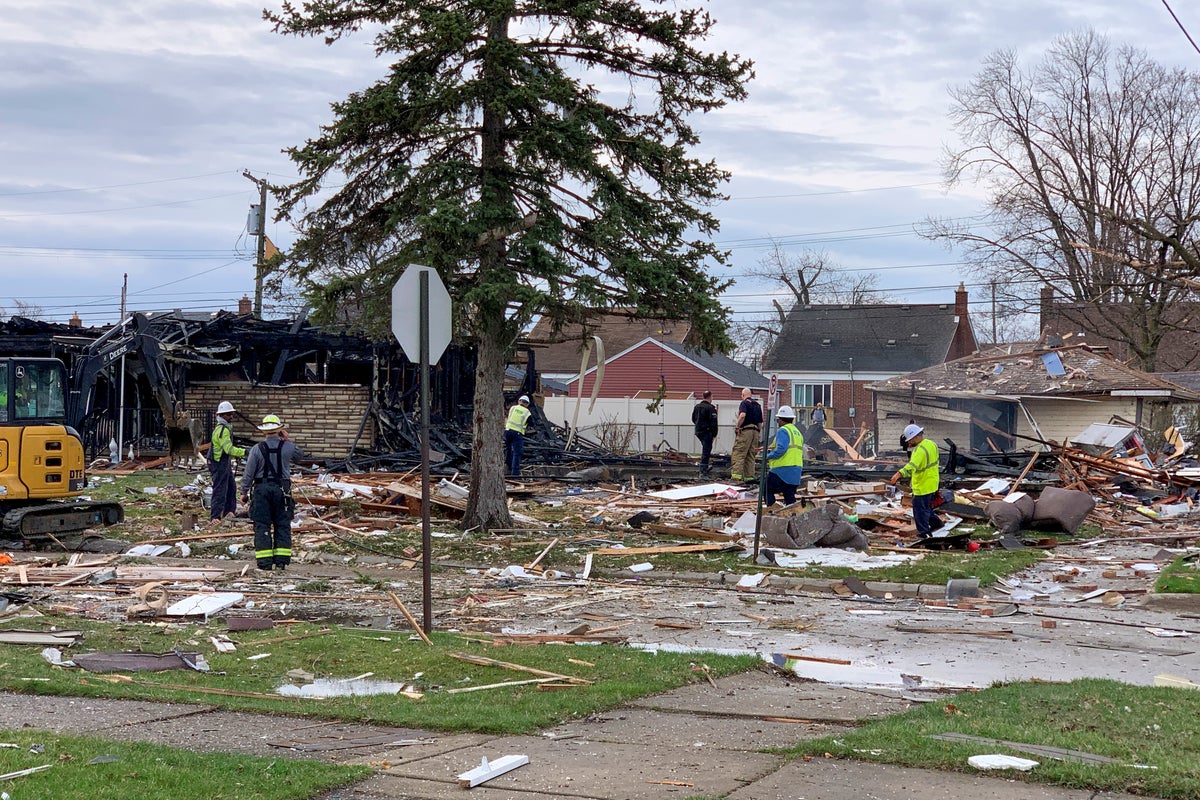Last Friday, the Trump administration canceled a contract that funded legal representation for about 26,000 unaccompanied minors who had crossed into the United States. In a memo sent by the Interior Department, dozens of non-profits were told to cease their legal representation work under the contract with the Department of Health and Human Services(HHS), and that they would no longer be receiving the more than $200 million they were relying on to continue providing lawyers to minors for the next year. This move came a little over a month after the administration issued a “stop-work order” on February 18 for these same services before quickly rescinding it amid backlash. It also comes as the administration ramps up its efforts to target unaccompanied youth for deportations.
Gerson, who asked that his last name be withheld, is one of tens of thousands of minors who had to navigate this complex immigration system. He fled gang violence in El Salvador when he was 16 years old, making the almost month-long journey and arriving at a port of entry in California in 2017.
Gerson was shocked when Border Patrol agents put him in handcuffs: “I remember being a 16-year-old, about to cross the border, the port of entry, and as I made my way through, it seemed like there was something wrong with my papers, and right away I was handcuffed.” He remembers immigration officials initially being suspicious of his age, despite providing evidence. “I was asked if I was part of a gang, I was asked to show them the tattoos, if I had any.” (To this day, he says, he has none.)
“You’ll see massive layoffs, closures of nonprofits, closures of programs… we’re talking a complete systematic collapse.”
He describes cramped conditions in a detention center with people who had also made grueling journeys, and says it was difficult to communicate with immigration officials because he didn’t speak English at the time: “I didn’t even know how to let the officers know that I had a headache or I had [the] flu. I was sleeping right next to a toilet.” After a day in the detention facility, Gerson was moved to a shelter for unaccompanied minors in Southern California.
Shortly after arriving at the shelter, Gerson was part of a group of minors who participated in a “know your rights” presentation put on by that nonprofit legal aid organization. The organization provided him with information about the types of relief he could pursue, including retaining an attorney to handle his case. That basic training is still available to unaccompanied minors, but the direct legal representation Gerson received afterwards is no longer going to be funded by the government—meaning it won’t be available to nearly as many minors.
Gerson describes his time as a teenager in the shelter as extremely stressful: “It was a terrible time. It’s a time [of] a lot of uncertainties.” He says he had a hard time sleeping and began to lose hope, especially after seeing a roommate get transferred to an adult facility after turning 18. After weeks in the shelter, Gerson says, he considered giving up and just accepting deportation—but the same legal support that the president has now gutted for tens of thousands of others helped him keep going.
He says his successful asylum application and subsequent permanent residency would have been far less likely without the support of one of the immigration nonprofits affected by the government’s attack on those services.
Michael Lukens is the executive director of the Amica Center for Immigrant Rights, one of the nonprofits that was part of the contract cut by the government last Friday. He says that while non-profits will still try their best to support unaccompanied minors with the small amount of funding they get from donations, it won’t be nearly enough to fill in the gap. “You’ll see massive layoffs, closures of nonprofits, closures of programs,” Lukens says, “so we’re talking a complete systematic collapse.”
As reported on Friday by NBC News, many organizations across the country have already been forced to start the process of laying people off. Several filed a lawsuit last week against the Department of Health and Human Services to restore the funding.
In the lawsuit, the organizations argue that the bipartisan William Wilberforce Trafficking Victims Protection Reauthorization Act of 2008 mandates that if HHS has “funding they can spend to provide counsel for unaccompanied children, they must spend that funding to provide such counsel.” They also point to the HHS’ Office of Refugee Resettlement’s Foundational Rule issued in 2024 that says, “ORR shall fund legal service providers to provide direct immigration legal representation for certain unaccompanied children, subject to ORR’s discretion and available appropriations.” A judge in California granted the non-profits a temporary restraining order on April 1, which should restore the funding for legal representation for unaccompanied minors until at least April 16th—if the government complies—while the case makes its way through the court.
A spokesperson for the Administration for Children and Families (ACF), which is part of the Department of Health and Human Services, told City Limits that the Office of Refugee Resettlement “continues to meet the legal obligations” established by the Trafficking Victims Protection Reauthorization Act. When I reached out to HHS to ask about the lawsuit, they told me they do not comment on ongoing litigation.
“Expecting children to face this system alone…strips them of due process and their fundamental human rights.”
Emily Kyle, supervising attorney at the Central American Resource Center of Los Angeles, said in a statement that cutting off legal services for children constitutes “a cruel and unacceptable violation of basic due process that goes against our nation’s core values.” Anna Gallagher, executive director of the Catholic Legal Immigration Network, echoed the same sentiments in another statement, calling the cuts “a cruel and unjust decision that puts the lives of vulnerable children at risk,” and adding, “Many of these children have fled violence, trafficking, and persecution, only to face an immigration system that is complex and unforgiving. Expecting children to face this system alone, if they cannot afford private counsel, strips them of due process and their fundamental human rights.”
After a month and a half in the shelter, Gerson moved in with family and continued fighting his asylum case with the support of the nonprofit organization. About two years later, he was granted asylum and eventually received a green card. He describes the administration’s recent actions against minors—ones going through exactly what he went through in 2017—as heartbreaking. “Targeting children that can’t even understand what’s going on in the outside world, it’s a disgrace…[they are] cutting their wings, cutting their possibilities to get relief.”
The White House did not respond to a request for comment.















